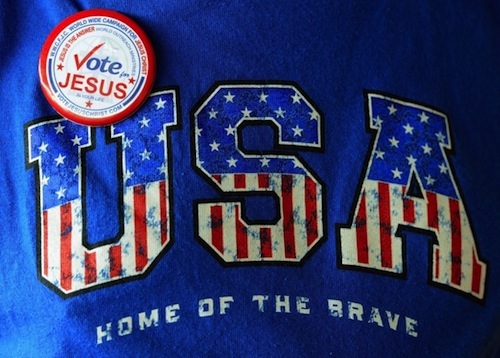Back in 2010, Congress passed the the Open Internet Order, which authorizes the FCC to prevent internet service providers from blocking particular applications—such as file sharing or telephony—and from charging content providers to make their sites load faster than others. This broad set of rules is called net neutrality, and Verizon hates it. On Monday, lawyers for Verizon and the FCC delivered oral arguments before the US Court of Appeals for the District of Columbia Circuit in an attempt to overturn/protect the Open Internet Order, respectively. You can read a broad summary of their positions here. Probably you should read it now, because by the end of the week Ars Technica could load really slowly as your ISP encourages you to get your news from Yahoo.
Tag Archives: verizon
Most Americans support NSA phone tracking
Strangely, perhaps even depressingly, the big deal in last week’s revelation of massive domestic NSA surveillance is how not a big deal everyone thinks it is. According to a Washington Post/Pew poll, 56% of Americans consider secret court orders that allow the NSA to access millions of phone records “acceptable,” while only 42% consider it “unacceptable.” Forty-five percent say the government should be allowed even more leeway than it already has secretly gave itself, provided that power is used to fight terrorism. Even though half of Americans presumably do not regard themselves as terrorists, they believe their government should be able to arbitrarily investigate them, because terrorism. At the risk of pique, this is the same country that refused expanded background checks for gun purchases as an unconscionable infringement on the Second Amendment.
Friday links! Total information awareness edition
Who wouldn’t want to know everything? If we could make sure we knew absolutely everything, nothing unfair would ever happen to us again. We would know, for example, whether the federal government’s secret reason why it’s authorized to collect the phone records of every Verizon customer is an airtight legal argument or a drawing of Mayor McCheese having his way with the Hamburglar. If we knew who all the terrorists were and whom they called, and who all those people called, we would have a sort of terrorist social network. I call it Friendsterrorist. It’s a list of everyone who is bad, and once we have it we need only shut those people down and live forever, like Myspace. Today is Friday, and what you don’t know could fill a book you aren’t allowed to read. Won’t you speculate on the contents with me?
Verizon Thunderbolt will empower, baffle you
httpv://www.youtube.com/watch?v=hXkqpul38wE&feature=player_embedded#at=12
I have watched this advertisement for the Verizon Thunderbolt several times now, and all I can say about the actual phone is that it looks hard to charge. Those of you who have seen The Daily Show or a Shia LaBeouf movie in the past three months will recognize this latest in a series of tone-deaf Verizon commercials that present the smartphone as an alien product that smashes trees and evokes submissive awe in rural people. Like that spot—in which a young man waits eagerly for his new phone to arrive and, once he actually gets it, decides to hurl it as far away as possible—this commercial manages to capture my two main fears about any new smartphone:
1) I have to charge it for eight hours every 16 hours.
2) It may provide evidential proof that I am some sort of douchebag.
I don’t think I’m alone in this.
Advertisers create new, empty word: love

This jar of marmite yeast extract spread loves you. It also points out that part of being in love is expressing it physically...
We here at Combat! blog have criticized the trend reporting at the New York Times in the past, but all is forgiven with today’s fascinating piece about marketers’ rampant use of the word “love.” Okay, not all is forgiven—we’re still pissed about their expose on the horrors of the Park Slope Food co-op—but at least this one has some verifiable information. It turns out that the Times is at its best when it’s writing about advertising, and advertising is at its best when it’s convincing you that the most profound human emotional experience can be replicated by using a Blackberry. Car manufacturers seem to be the biggest purveyors of sweet nothings, here, with Honda, Subaru and Nissan all launching love-oriented ad campaigns in the last two years. The notion of people loving their cars is nothing new. Your car represents freedom, self-sufficiency, responsibility and socio-economic status, as anyone without a car will tell you. Anyone without a girlfriend will make a similar argument, so the connection between cars and love seems obvious—especially if you are dead inside. Consider the rationale offered by Michael Kuremsky, Vice President and Global Brand Franchise Leader at Olay: “We view Olay as a partner alongside women, so the emotional connection is Olay validating to a woman that we want to help her achieve her best skin, to get to a place where she loves her skin.” Tonight, darling, I will take you on a carriage ride around Central Park and validate that I want to partner alongside you in achieving your best handjob, ever.



